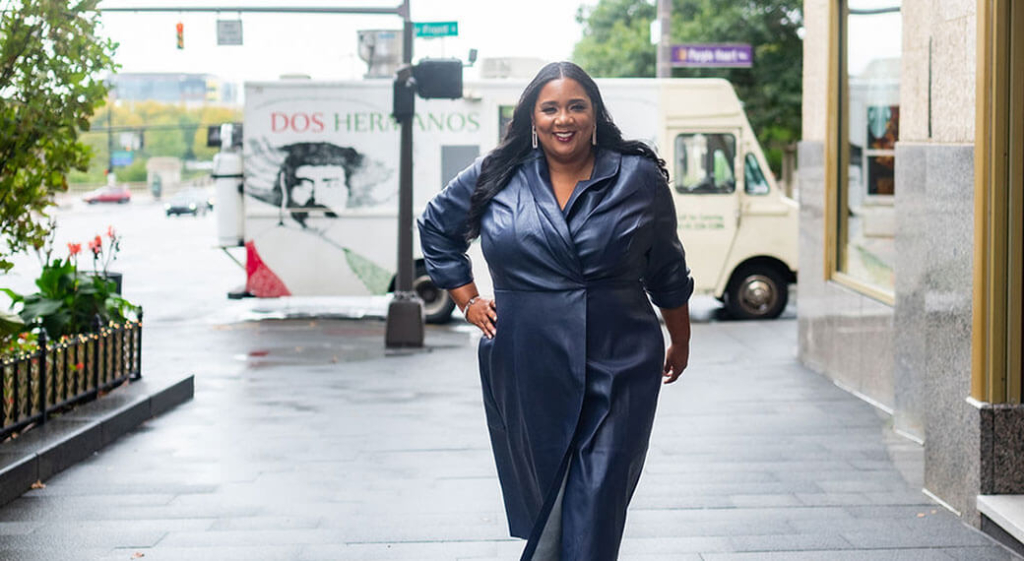With no set plan or working capital, building a business is tough. However, with a driven work ethic, unending passion, and some cherished family recipes, Lisa and Vincente Gutierrez opened their food truck business, Dos Hermanos Taco Truck, and rolled right into entrepreneurship.
As her business continues to grow, Lisa is working with other entrepreneurs to share her knowledge, create jobs, and develop new opportunities for the Columbus, Ohio community. She loves to collaborate with other businesses and strongly values passing on all of the hard lessons she has learned during her time in the foodservice industry.
We interviewed Lisa Gutierrez about the secrets of her success and how she has grown Dos Hermanos from one borrowed food truck to a million-dollar business with 45 employees.
Where did you begin your culinary career?
I grew up in Boston, Massachusetts where I started at the Cheesecake Factory. It was the very early days of that restaurant chain and they asked that I come out to Columbus, Ohio for some general manager support.
I fell in love with the city and the food vibe that goes on here in Columbus. And they asked me to stay on as part of the management team located at Easton.
At what point did you decide to look into running a food truck?
I was 15 years into a high management-level position, and I was getting burned out. My husband was the one who had the idea of starting a food truck.
I always laugh about it because I didn’t have any idea what a food truck was! I may have seen food trucks on the side of the road, stationary. But I had no idea of this big momentum coming through the country to bring food to people, rather than have customers seek us out.
Then, I started researching. I’ve always been in restaurant management, however, I had never been an entrepreneur which brings its own challenges. I wished I had paid more attention to systems and processes when I was the restaurant manager. Those would have been handy skills to incorporate into an entrepreneurial business.
I agreed to try the food truck and if it didn’t do well, I told him to close the concession window and drive off. That was a kind of a joke between the two of us.
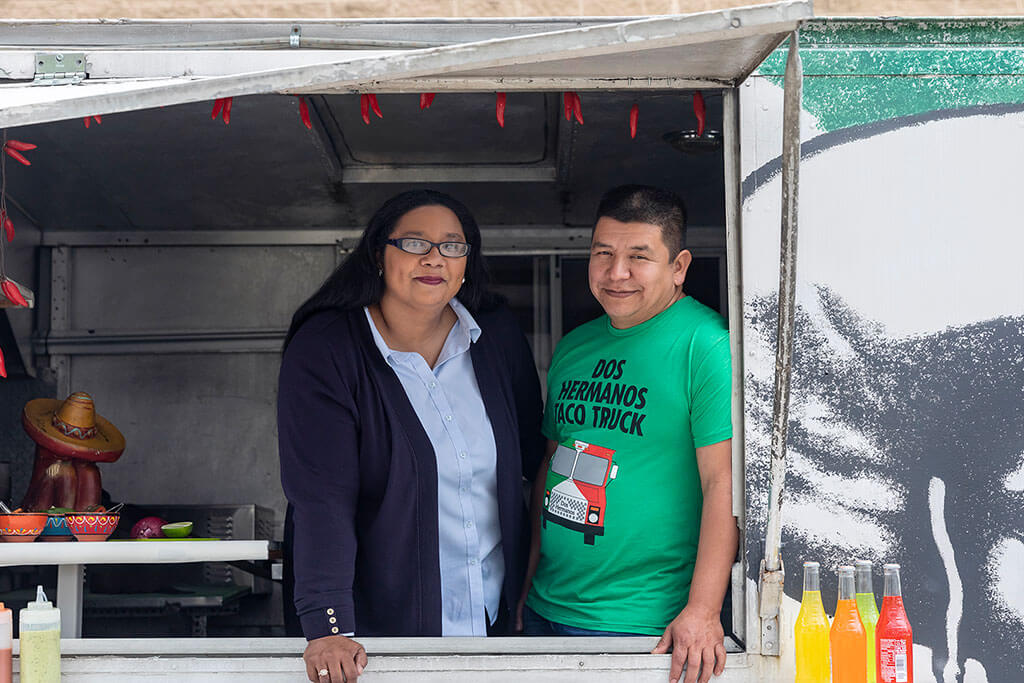
Do you find the barrier for entry for starting a food truck is lower than a fine dining restaurant, fast-casual, or even a catering business?
Absolutely. There is risk with any business, but I felt more comfortable going the food truck route because I knew it would be a smaller startup cost. I also knew I wouldn’t need as many employees. In the beginning, we had no employees. It was just me and my husband. But we were able to bootstrap the business. We would purchase food that day, make and prep the dishes, and then go out in the evening and sell.
In the very early days, there was no conversation about sourcing local or getting delivery or any of those things. There wasn’t a GFS truck dropping off big food orders. We shopped at local Mexican grocery stores to get the authentic ingredients that we needed.
What is it about Columbus’ food scene that attracts so many new restaurants and concepts?
I think that the willingness of people to try. People are also so hospitality-oriented here. They say, food brings a community together; I think this is the best example of it that I’ve seen in different places that I’ve visited around the country. The Columbus community is receptive to new concepts and wants to try new things.
I also think the feedback we receive as entrepreneurs or restauranteurs is genuine whether it is good or bad. They appreciate the hard work that goes into smaller restaurants and family-owned restaurants. Especially for my husband and his brother here at Dos Hermanos. It’s authentic Mexican food and the recipes came from their family. It’s very near and dear to their hearts and there’s a lot of passion behind it.
Dos Hermanos is focused on Oaxaca cuisine from southwestern Mexico. Tell us about the food from that region.
In Oaxaca, my husband and his family are well known for their tamales and how they wrap them in banana leaves instead of corn husks. It’s a different technique because it leaves the masa a bit softer and less dry than the corn husk version. The banana leaf also adds a nice flavor to the tamale.
In Oaxaca, everything is fresh. The tomatillos come in fresh with the husk still attached. They pull the husk off and roast it in the oven. My husband and his brother are particular with the kind of pot we use to cook the barbacoa. There are so many different techniques and spices that they use and they are very committed to the recipe – they don’t deviate from the recipe at all. Sometimes I suggest maybe trying something new, but that conversation ends quickly because they’re prideful about their craft. The Oaxacan people are very passionate about their food which is why it tastes so incredible.
My husband and his brother, which is how the name Dos Hermanos came about, have been in restaurants for over 30 years. In the very early days, they worked with Cameron Mitchell. The running joke with Cameron would be, “You guys can cook. You should have your own thing.” So now when we see him at events, they all just laugh.

Mexican food is not a monolith. The food in Oaxaca is different than the Mexican food served on the Gulf Coast. Do you think there is something to be said for starting a business focused on regional Mexican food versus a broader Mexican restaurant that does it all?
Absolutely. I think it goes to sharing with the guests about where you’re from. My husband loves to be out in front of the truck. The way we divide and conquer the business is he is in the truck; my brother-in-law is here at the Commissary Kitchen and I take care of management. My husband loves to talk with guests about topics like how we use his grandma’s recipe, how he toasts the peppers, or why we use certain ingredients. He loves sharing stories with our customers.
The running joke with Cameron would be, “You guys can cook. You should have your own thing.” So now when we see him at events, they all just laugh.
That was the great thing when I saw him go from working restaurants where you’re behind the scenes and not out in front with the guests. Now, he creates a dish, hands it straight to a customer, and has the pleasure of witnessing how much they love the food. I think that is what keeps him so passionate about the business.
I do think you could do something that is broader and just say this is what the masses may know about. But I also think there is something very special about sharing family recipes with this community.
At what point did you know that the business was ready to grow beyond a single food truck?
We had the one truck, me and my husband. EDCI had gotten food carts rentable for either the day, week, or month. I thought, if we could do two of these at the same time, I could put the cart downtown at the OSU medical center, and then we could still take the truck out somewhere else in the evening.
That’s where someone from Levy Restaurants approached us. They had come down to the OSU Medical Center and said, “We’ve just had some of your tacos and we would like to know if you would like to come in and serve inside the stadium on game day.” That was a huge turning point for us.
I remember the day they took us to the stadium thinking to myself, there are not enough tacos in the world. I looked at all the empty seats and then I thought about what a tradition this was and how I wanted to be a part of it. And we did! We spent a couple of seasons in the Buckeye stadium on game day. Now that taco cart is rented by a company and it stays outside the stadium. The cart is out in the parking lot and there’s a tailgate for them.
With the North Market, it was the same way. I had been asked by the City of Columbus to be on the advisory board about how to start with the new regulations for food trucks. I remember sitting in the first meeting thinking that I’d love to put taco trucks and carts all around North Market.
I reached out to Rick, and he had an even bigger vision for Dos Hermanos than I did. He said to me, “I’d like you to audition for one of the spaces inside the market.” He wanted to bring us inside because it would cure the seasonality of our food truck business. Rick said, “Right now you probably do really well in the spring and the summer.” We would always let our employees go towards the winter months or they would choose to go because it got so cold out. Rick suggested that if he brought us inside the market, we could employ people all year round. And that was so powerful.
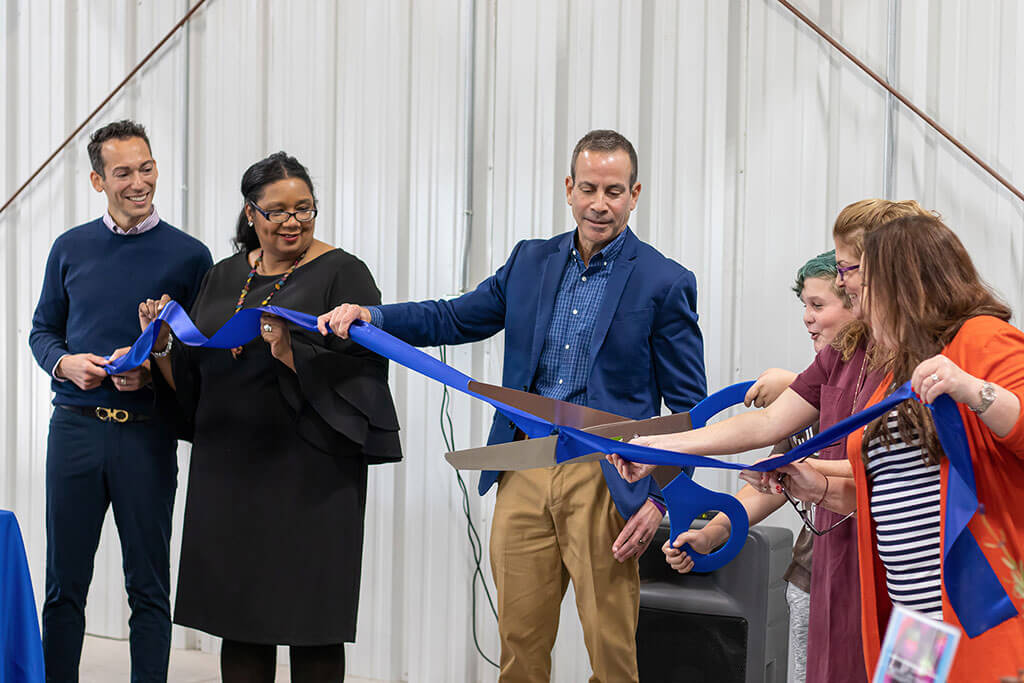
How different is it running a food truck to a brick-and-mortar location?
Very different. The food truck has a lot of momentum in a short period of time. We could have an event where we serve 100 people in an hour or 60-100 depending on what we’re serving. We can change the menu by either scaling it up or down. Sometimes we can go all the way down to just tacos.
In a brick and mortar, your guests are expecting a certain, more stabilized menu every day. And they’re expecting predictable operation hours. I like the truck and cart for the flexibility aspect, but what I don’t like is the weather. Sometimes you can plan to go out, and then it rains and the entire event is lost. As opposed to being inside a brick and mortar, where you’re always covered and in a building.
On that note, if someone wanted to start their own business, do you think you could have an oversaturation of a certain type of food? Or do you think everyone’s unique story will be enough?
A personal story is enough. Sharing their special sauce, their favorite dish, or something unique they created. The whole business model can revolve around a story and this one special dish. If they stay authentic and share it with people, I think they have a winning chance.
What do you think will be the next great dish or concept out of Mexico to tantalize our palates?
I’d love to see more mole dishes come here because they are fantastic. People may think there’s just one kind but there are many different kinds of mole sauce. I’d love to see some of that come this way, maybe on a taco.
Let’s talk (unfortunately) about Covid. How did it initially impact your business?
I didn’t know what to do!
At the time, we had a lot of guest chef restaurant programs that we were participating in. Also, the Arnold Classic was coming up which usually kicks off our year in terms of events and festivals. When the North Market went down to takeout only, we were one of five restaurants that stayed open. I remember going into the market and hearing the fans turning on the ceiling. It was just that silent.
Something we weren’t prepared for that we’ve changed and fixed is that we didn’t have contracts for the events. Many of the weddings wanted deposits back immediately. People throwing graduation parties wanted their money back very quickly. There was substantially more money going out than coming in. One thing that did save us was our Commissary Kitchen owned by ECDI called Food Fort 2.0. It was built for us as a growing business and was the next progression and incubation in our journey.
When we moved over in October of 2019, I had all these aspirations of what this building was going to be. For example, we were simply going to make all the food for our venues and it would be closed to the public. I’d have my office to do payroll in and get some quiet, away from the world.
Then Covid hit. The building is located in an underserved community that is also a food desert, so people started showing up at my door to ask if I had fresh food. The bus system slowed when Covid first happened and people in this neighborhood didn’t have transportation. The nearest major grocery store was a 45-minute bus ride or 2.8 miles if you drive there by car.
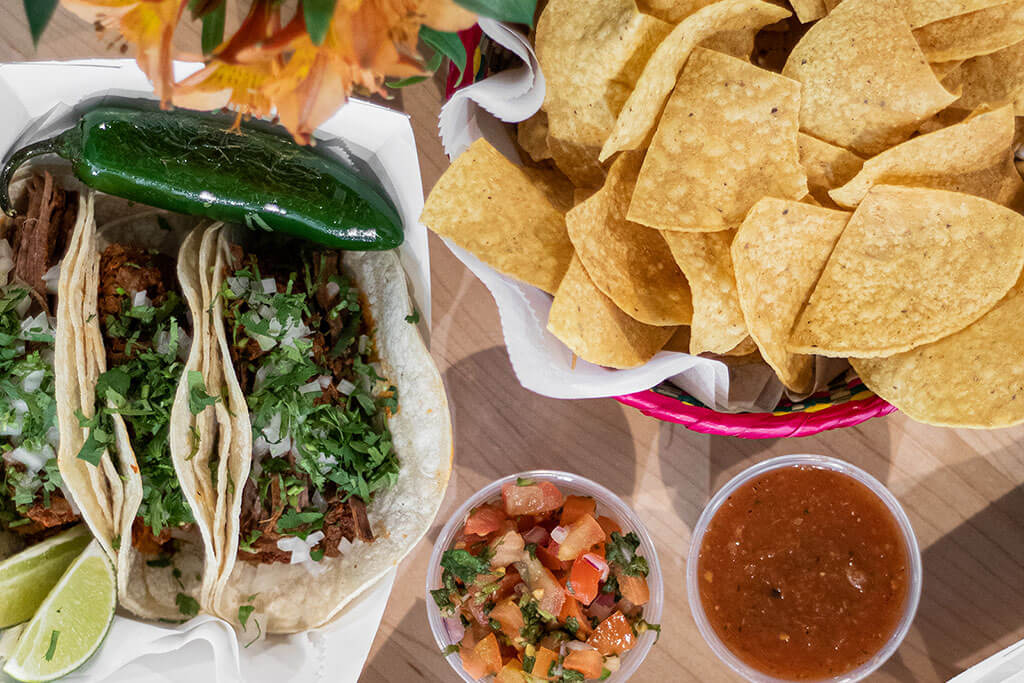
One day, a gentleman rang the doorbell and asked me, “Do you have a burrito?” Being that I was scared of losing my own business and scared of contracting Covid, I told my brother-in-law to make him a burrito. I went to the office to get some change out of my purse and continued to focus on running the operation. Well, that gentleman came back the next day and brought his friends. Then they came back the third day, and there were four of them. Then the fifth day and so on. By the end of the week, I had to put a cash register in the front lobby because I couldn’t dig change out of my purse every day.
I remember my husband’s friends showed up. A lot of restaurants had closed, his night job had closed, and people were looking for work. We had 21 employees and we didn’t even have enough work for them. So, what could I possibly do? Well, I decided we could put a food delivery tablet for DoorDash in the Commissary Kitchen, and our friend could work from 4:00 to 8:00 PM.
Shortly after the tablets arrived, DoorDash turned into Uber Eats, Postmates, Chow Now, and Grub Hub. Now, that small job we created for one person has grown to two people during the day and three people in the evening. So, out of Covid, we turned our Commissary Kitchen into a takeout restaurant. We see 50 to 60 delivery drivers per day and have both lunch and dinner services here in this neighborhood.
So adapting to technology like Uber Eats and Grub Hub is what helped you very quickly get ahead against Covid.
We were the first restaurant on Uber Eats in the city. They had done an article on us and I didn’t even know what Uber was. I had never even been in an Uber car. One of the local magazines ordered food from us via Uber and then wrote about it and spread the word. But because we were on those platforms so long ago — it’ll be six years this year — we were already well established on the platform with a customer base when Covid hit. We were lucky.
How should restaurants support each other while still competing for customers in a non-antagonistic way?
We try to partner with everyone we can. For instance, if people wanted to make family meal bundles — which was very popular at the beginning of the pandemic — we would jump on board. We could add the chips and guacamole to the meals they’re putting together. I think restaurants look for a way to collaborate and I truly believe the community truly supported local during the pandemic.
Do you think the community will continue to support local past the pandemic? Or if restaurants will continue to support other restaurants?
I think so. I know I won’t forget the business that helped me. Some businesses put together places in the suburbs for us to bring our food trucks. They had rotation schedules and they spoke to homeowner associations. We also partnered with Street Food Finder where the guest could order from the truck on a mobile app.
Street Food Finder allowed them to dine safely and for my staff to work safely. I had to convince people to come to work and when they’re here, they’re going to be safe. There is no contact with the guest whatsoever. And that has worked for us.
One other thing I’ll mention that was very interesting was pre-Covid was we would go downtown and get a person coming out of an office. They’d buy a pop and maybe a burrito. But when the pandemic happened and we started to go out in the suburbs it was still the same amount of gas and staff, but the check average was a lot higher because mom and dad both worked from home and the kids are doing school from home.
Did the demeanor of your customers change with the onset of Covid? Some people don’t like wearing masks or refused certain services. Did your customers change in any way?
The pandemic introduced us to a lot of very new customers because we tapped into new areas that weren’t as food truck receptive before but now see the value in it. We could bring food to their whole neighborhood. They could go out, take a break, and get some fresh air.
As far as masks go, we’ve never had an incident. Here at the Commissary Kitchen we have stickers on the floor, we have the sign on the door. If a Door Dasher comes to pick up food at your establishment and your employee doesn’t have a mask on, the Dasher may report it, and possibly terminate relationships with restaurants. I thought it was very interesting that both sides were holding each other accountable to keep people safe and make this work.
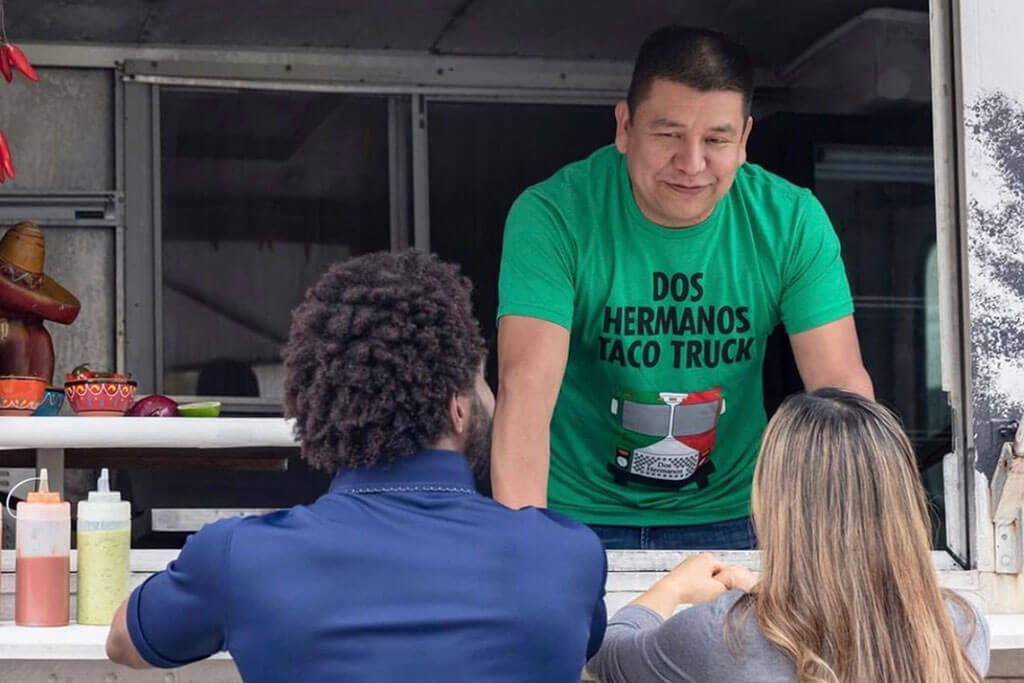
Have you been impacted by supply chain shortages?
Yes, we have. I spend a lot of time going from store to store to try and find staple items that we absolutely need. However, we do work with our food provider, talk to other food trucks to find ingredients and we pick up supplies for each other. A lot of people are working together on that aspect as well, to try and make sure we can at least get the staple items.
What is something you wished you had learned before starting a food truck?
Everything. I wish I had learned everything. But that’s the beauty of this journey. Every step of the way, I learn so many things. I’ve learned so much about people and taking care of the people who work with you. We have 45 employees now but it was just me and my husband at the start. We also reached back and hired some of the talented managers from other concepts we’ve worked on.
There are a lot of core values that we stick to and won’t deviate from. I think the top two lessons in this journey are: One, how you treat people; and two, how you stay true to your craft.
Did you have a mentor when you started? Or were you learning from just yourself?
I started learning from myself and researched on the internet. There’s a nonprofit here in town called ECDI that found us. They literally came out to the side of the road where we had the food truck and asked me if I knew about the services they offered. This was my awakening to a community with similar goals.
Being in corporate for so long, I didn’t see what was going on outside in the world. I didn’t know much about computers and I didn’t know how to make a menu in Word. The Women’s Business Center, which EDCI introduced to me, helped me learn all those skills.
Another place that was very important was the EDCI Food Fort where food trucks park. This was a place where I could have deliveries as opposed to running back and forth to the store each day. This was also a place where there was refrigeration, guidance about being properly licensed, and how to work with the health department. The Food Fort was kind of a one-stop-shop.
So, going back to your question, I wish I had known Everything. Every step of the way, every year that we’ve been in business we’ve learned not only about the licensing but taxes, letters of intent, how to move into different facilities, the payroll aspect, workers comp, insurance, liability — There are so many things to learn.
You start with what you have. In our case, we had to borrow a food truck. My husband’s friend said he tried it, couldn’t make a go of it, and we could take it, see what we could do with it, and pay him back over time. I feel like staying the course, surrounding yourself with good people and good places like ECDI is the way to go. Getting around other like-minded business owners is always my biggest piece of advice I give to people when they ask me if they should start a business.
Now you’re passing that knowledge onto new people. What is the most fulfilling part of mentoring others?
Oh my gosh, I love it! Mentorship takes my story full circle. What is most rewarding for me is to let people know they’re not alone. You’re really not. We’re all trying to navigate. The food truck industry along with many other industries are all turned around and upside down.
That’s why I decided to start Food Truck Millionaire LLC. It’s a business coaching firm that helps people to go from the concession window cashier or the food truck driver to the CEO of their own business where they can have a marketing team and grow their own revenue streams. You can grow it to impact as many people’s lives as you want to. It can be as much or as little as you want it to be.
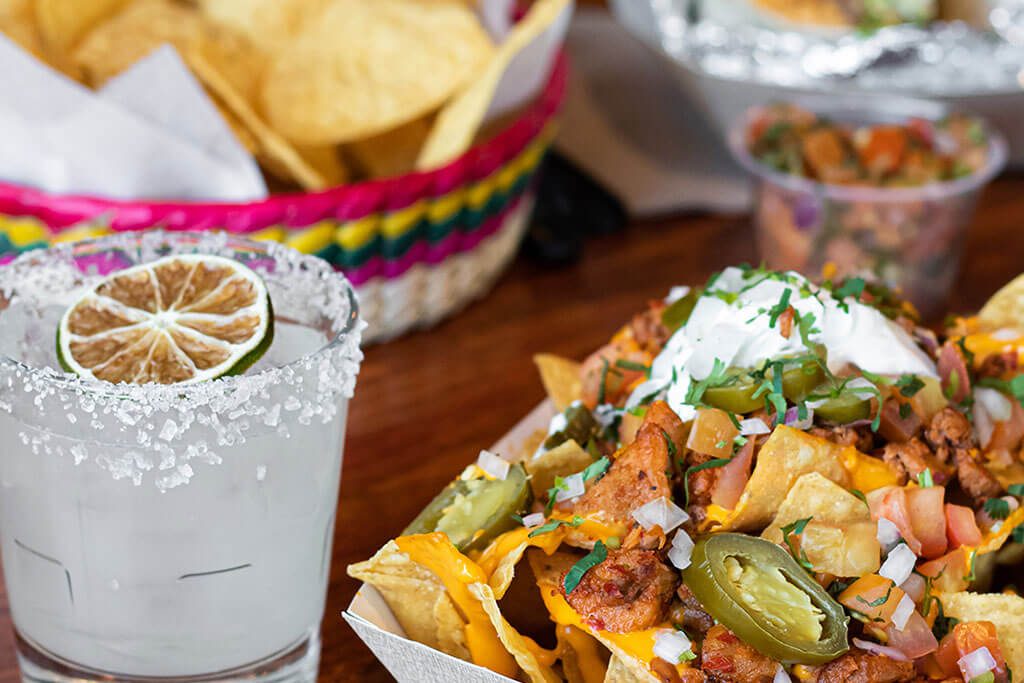
Do you think all restaurant owners should have a mentor to help guide them?
Absolutely! It could be different kinds of mentors. It could be one-on-one business coaching, group coaching, or a class. It could be on Zoom or something at a college or a school.
A lot of places I wanted to move the brand to, I would volunteer and work at. I know I worked a couple of times at the Ohio Stadium just to see how having a concession stand would work. Shortly after, they approached us and asked if we want to be a subcontractor and enter that venue.
I think that sometimes people limit themselves. For instance, “I don’t have the time, I don’t have the money.” There are ways around that, so be open to those options. If I could have staved off one or two years of growth from learning different things from other entrepreneurs, I would have loved that. So yes, I think one of the keys to success is to be around a mentor. Someone to encourage you.
Is there anything customers can do to support restaurants aside from purchasing their food?
Sharing any social media really helps. Businesses now are making sure to have great pictures that really represent their work. So, if people can share, get the word out, and let other people know we are still here, we still want you to come and try this food, I think that’s the biggest thing right now.
Where do you see the future of Dos Hermanos? Where do you want to be next year?
Well, my husband wants more food trucks. We are looking forward to festivals coming back and seeing some of those customers who are still remote come out again. We love being active in the city. We enjoy sharing the food, literally. My husband especially loves sharing the food with people.
There will be growth in our future. We are working on some things, so stay tuned.

